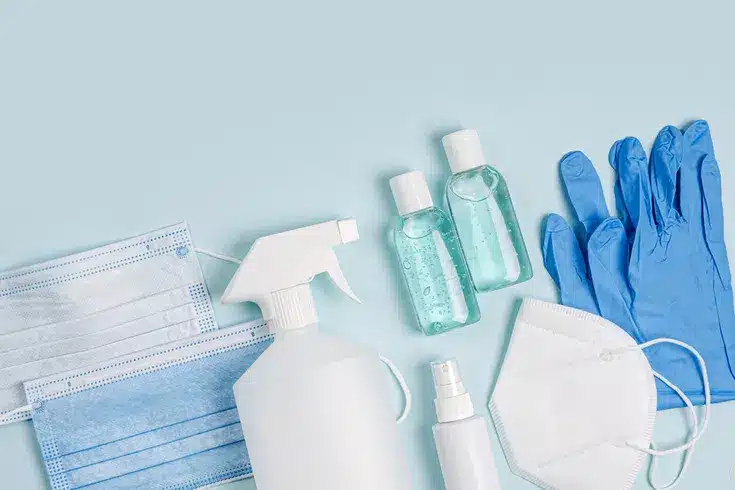Legal Regulations on Advertising and Promotional Activities for Stem Cells in the Medical Field

In recent years, with the development of the internet, social networking services (SNS) such as Twitter, Facebook, Instagram, and LINE have rapidly become widespread. It has become common to see influencers and others conducting advertising and promotional activities on these platforms.
Additionally, video streaming sites like YouTube have also rapidly gained popularity, with a variety of videos being posted daily.
Even on video streaming sites, there has been an increase in instances where YouTubers and others are conducting advertising and promotional activities through their videos.
The issue at hand is whether the so-called “stealth marketing” (hereinafter referred to as “stema”) – where influencers and YouTubers, despite receiving requests from companies to conduct advertising and promotional activities in exchange for economic compensation, carry out these activities secretly – is illegal or not.
Even when it comes to stema, the legal regulations vary depending on the content of the advertising and promotional activities. Therefore, in this article, we will explain the legal regulations concerning stema in the medical field.
What is Stealth Marketing?
Many people may have heard the term “stealth marketing,” but it seems that not everyone fully understands its meaning.
Stealth marketing, often shortened to “stema” in Japanese, refers to the act of advertising in a way that consumers do not realize they are being advertised to.
The term “stealth” implies secrecy, confidentiality, and concealment. It is used to describe a form of marketing where the fact that something is an advertisement is hidden from the consumer.
Similarly, the term “undercover,” which also implies secrecy and concealment, is used in combination with “marketing” to refer to “undercover marketing.”
The term “stema” can be used in two different contexts:
- “Impersonation type” where a business owner or someone who receives financial compensation from a business owner posts reviews on review sites, misleading consumers into believing that the reviews are posted by impartial third parties.
- “Benefit concealment type” where a business owner provides financial benefits to a third party to advertise or promote products or apps, etc., without disclosing this fact.
In the context of influencers and YouTubers, it is primarily the second type of stealth marketing that becomes problematic. Therefore, the following explanation will focus on this second type of stealth marketing.
https://monolith.law/youtuber-vtuber/stealth-marketing-youtuber[ja]
What Types of Advertising Activities Exist in the Medical Field?

What exactly do we mean when we refer to advertising activities in the medical field?
When we talk about advertising activities in the medical field, many people might imagine things like the promotion of specific clinics or medications.
It’s relatively easy to imagine how advertising activities related to clinics or medications could be subject to legal regulations, such as the Japanese Act on Securing Quality, Efficacy and Safety of Products Including Pharmaceuticals and Medical Devices (hereinafter referred to as the “Pharmaceuticals and Medical Devices Act”).
However, the scope of advertising activities in the medical field is surprisingly broad, and includes advertising activities related to cosmetics, medical devices, health and beauty devices, and health foods.
Therefore, it’s important to be careful not to mistakenly engage in stealth marketing under the assumption that it’s not an advertising activity related to the medical field, as this could inadvertently lead to a violation of the Pharmaceuticals and Medical Devices Act.
General Legal Regulations Regarding Stealth Marketing
The general legal regulations regarding stealth marketing are governed by the Japanese Act against Unjustifiable Premiums and Misleading Representations (hereinafter referred to as the “Premiums and Representations Act”).
What is the Premiums and Representations Act?
The Premiums and Representations Act is a law designed to strictly regulate the misrepresentation of the quality, content, price, etc. of products and services. It also limits the maximum amount of premiums to prevent excessive provision of such, with the aim of protecting an environment where consumers can independently and rationally choose better products and services.
Issues related to the Premiums and Representations Act include misleading representations of superiority (Article 5, Paragraph 1 of the Premiums and Representations Act) and misleading representations of advantage (Article 5, Paragraph 2 of the Premiums and Representations Act). For more information on general legal regulations regarding stealth marketing, including the Premiums and Representations Act, please refer to the following article.
https://monolith.law/corporate/stealth-marketing-youtuber[ja]
Legal Regulations Specific to Advertising and Promotional Activities in the Medical Field, such as Stealth Marketing
The main issue with the legal regulation of advertising and promotional activities, such as stealth marketing in the medical field, is its relationship with the Japanese Pharmaceutical and Medical Device Act (薬機法).
In the following, we will explain the legal regulations under the Japanese Pharmaceutical and Medical Device Act (薬機法).
Purpose of the Japanese Pharmaceutical and Medical Device Act
Firstly, what is the purpose of the Japanese Pharmaceutical and Medical Device Act?
The purpose of the Japanese Pharmaceutical and Medical Device Act is defined in Article 1 of the Act.
(Purpose)
Article 1: This Act aims to ensure the quality, efficacy, and safety of pharmaceuticals, quasi-drugs, cosmetics, medical devices, and regenerative medicine products (hereinafter referred to as “pharmaceuticals, etc.”) and to prevent the occurrence and spread of health and hygiene hazards caused by their use. In addition, it aims to take necessary measures to regulate designated drugs and to promote research and development of pharmaceuticals, medical devices, and regenerative medicine products that are particularly necessary for medical purposes, thereby aiming to improve health and hygiene.
Article 1 of the Japanese Pharmaceutical and Medical Device Act
The Japanese Pharmaceutical and Medical Device Act aims to ensure the quality, efficacy, and safety of pharmaceuticals, quasi-drugs, cosmetics, etc., and to prevent the occurrence and spread of health and hygiene hazards.
For example, it would be meaningless if a drug is sold but has no effect. Also, situations where serious harm is caused to the body by taking the drug must be avoided.
In simple terms, the Japanese Pharmaceutical and Medical Device Act is a law aimed at providing people with safe and effective pharmaceuticals, etc., that are recognized for their safety and efficacy.
Regulations under the Japanese Pharmaceutical and Medical Device Act
In the following, we will explain the regulations imposed on advertising activities under the Japanese Pharmaceutical and Medical Device Act.
Prohibition of Exaggerated Advertising
The Japanese Pharmaceutical and Medical Device Act prohibits exaggerated advertising in Article 66.
(Exaggerated Advertising)
Article 66: No person shall advertise, describe, or disseminate false or exaggerated information about the name, manufacturing method, efficacy, effect, or performance of pharmaceuticals, quasi-drugs, cosmetics, medical devices, or regenerative medicine products, whether explicitly or implicitly.
2. Advertising, describing, or disseminating information that could be misunderstood as being guaranteed by a doctor or other person regarding the efficacy, effect, or performance of pharmaceuticals, quasi-drugs, cosmetics, medical devices, or regenerative medicine products shall be deemed to fall under the preceding paragraph.
3. No person shall imply abortion or use obscene documents or drawings in relation to pharmaceuticals, quasi-drugs, cosmetics, medical devices, or regenerative medicine products.
Article 66 of the Japanese Pharmaceutical and Medical Device Act
For example, if influencers or YouTubers advertise false or exaggerated information about the efficacy and effects of pharmaceuticals, quasi-drugs, and cosmetics, or advertise articles that could be misunderstood as being guaranteed by a doctor or other person, they are likely to be in violation of Article 66 of the Japanese Pharmaceutical and Medical Device Act.
Prohibition of Advertising for Unapproved Pharmaceuticals, Medical Devices, and Regenerative Medicine Products
The Japanese Pharmaceutical and Medical Device Act prohibits advertising for unapproved pharmaceuticals, medical devices, and regenerative medicine products in Article 68.
(Prohibition of Advertising for Unapproved Pharmaceuticals, Medical Devices, and Regenerative Medicine Products)
Article 68: No person shall advertise the name, manufacturing method, efficacy, effect, or performance of pharmaceuticals, medical devices, or regenerative medicine products that are specified in Paragraph 1 of Article 14, Paragraph 1 of Article 23-2-5, or Paragraph 1 of Article 23-2-23, and have not yet received approval or certification under Paragraph 1 of Article 14, Paragraph 1 of Article 19-2, Paragraph 1 of Article 23-2-5, Paragraph 1 of Article 23-2-17, Paragraph 1 of Article 23-25, or Paragraph 1 of Article 23-37, or Paragraph 1 of Article 23-2-23.
Article 68 of the Japanese Pharmaceutical and Medical Device Act
In relation to the coronavirus, unapproved drugs such as Avigan and Remdesivir have come into the spotlight. However, Article 68 of the Japanese Pharmaceutical and Medical Device Act prohibits advertising the efficacy and effects of pharmaceuticals and other products that have not received approval or certification.
Penalties for Violation of the Japanese Pharmaceutical and Medical Device Act
Under Article 66, Paragraph 1 of the Japanese Pharmaceutical and Medical Device Act (hereinafter referred to as “the Act”), anyone who violates its provisions will be subject to a penalty of up to 2 years imprisonment or a fine of up to 2 million yen, or both, as stipulated in Article 85 of the Act.
However, the current penalties under Article 85 of the Act were considered too lenient, leading to a situation where false and exaggerated advertising could not be prevented.
Therefore, the Act was revised in December of Reiwa 1 (2019), and the revised Act came into effect on August 1, Reiwa 3 (2021).
Under Article 75-5-2 of the revised Act, the penalties are stipulated as follows:
(Order to Pay Surcharge)
Article 75-5-2: When a person (hereinafter referred to as “the surcharge subject”) commits an act in violation of the provisions of Article 66, Paragraph 1 (hereinafter referred to as “the surcharge subject act”), the Minister of Health, Labour and Welfare shall order the surcharge subject to pay to the national treasury a surcharge equivalent to 4.5% of the total amount of the price of the pharmaceuticals, etc. related to the surcharge subject act during the surcharge subject period.
2. The “surcharge subject period” referred to in the preceding paragraph means the period during which the surcharge subject act was committed (including the period from the day the surcharge subject act was stopped to the day six months after that day, if the surcharge subject took measures prescribed by a Ministry of Health, Labour and Welfare ordinance to eliminate the risk of misunderstanding about the name, manufacturing method, efficacy, effect or performance of the pharmaceuticals, etc. due to the surcharge subject act, up to that day).
3. Notwithstanding the provisions of the preceding paragraph, the Minister of Health, Labour and Welfare may not order the surcharge subject to pay the surcharge in the following cases:
(i) When issuing an order under Article 72-4, Paragraph 1 or Article 72-5, Paragraph 1 (limited to cases where the impact on the occurrence or spread of health and hygiene hazards is deemed minor.)
(ii) When taking action under Article 75, Paragraph 1 or Article 75-2, Paragraph 1
4. If the amount of the surcharge calculated in accordance with the provisions of the preceding paragraph is less than 2.25 million yen, the surcharge may not be ordered to be paid.
Revised Pharmaceutical and Medical Device Act Article 75-5-2
Under the revised Act, a surcharge of 4.5% of the total amount of the price of the pharmaceuticals, etc. related to the surcharge subject act during the surcharge subject period will be imposed.
For more detailed information on the amendments to the Act, please refer to the following website of the Ministry of Health, Labour and Welfare.
This page introduces the advertising regulations for pharmaceuticals, etc. under the Act on Securing Quality, Efficacy and Safety of Products Including Pharmaceuticals and Medical Devices (hereinafter referred to as “the Act”).
Regulations on Advertising of Pharmaceuticals, etc. | Ministry of Health, Labour and Welfare [ja]
Advertisements for pharmaceuticals, quasi-drugs, cosmetics, medical devices, or regenerative medicine products can have a significant impact on public health and hygiene if they are inappropriate, and are therefore regulated as follows under the Act.
Summary
We have explained the legal regulations concerning stealth marketing in the medical field.
For stealth marketing in the medical field, not only the Japanese Act against Unjustifiable Premiums and Misleading Representations, but also the Japanese Pharmaceuticals and Medical Devices Act may be violated. Therefore, companies requesting stealth marketing and influencers or YouTubers conducting advertising and promotional activities need to be careful not to violate the law.
Furthermore, there is a possibility that consumers may suffer serious damage as a result of purchasing and taking medicines due to illegal advertising and promotional activities.
It is important for not only the companies that request advertising and promotional activities from influencers or YouTubers, but also the influencers or YouTubers conducting these activities, to have accurate knowledge about stealth marketing in the medical field.
Legal knowledge and professional judgment are required for legal regulations concerning advertising and promotional activities in the medical field, so please consult a knowledgeable law firm.
If you want to know the content of this article in a video, please watch the video on our YouTube channel.
Category: General Corporate





















